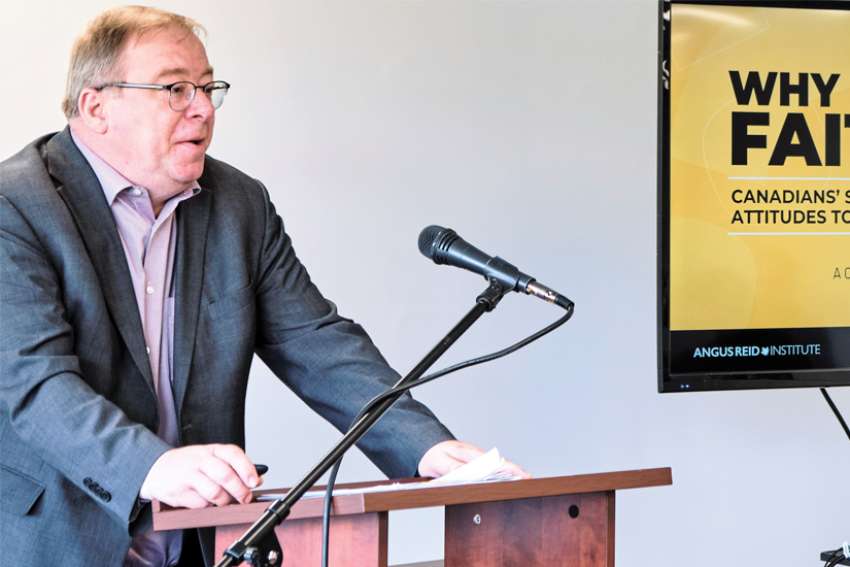LANGLEY, B.C. -- A five-year study by the non-partisan think tank Cardus is complicating the narrative of Canadian religious decline while highlighting the shifting and sometimes complicated nature of Canadian religious identity.
The religiosity of Canadians aged 18 to 35 was one of the surprises identified at a recent presentation of a major Cardus study of Canadian religious identity.
Ray Pennings, executive vice-president of Cardus, presented research findings to a gathering at Trinity Western University on May 18, one in a national series entitled Why the Faith? At the meetings, Cardus and its research partner the Angus Reid Institute are releasings results of their five-year project to local faith communities, which are then invited to offer their own insights and anecdotal responses to the research.
Pennings told participants that the research grew out of dissatisfaction at Cardus and Angus Reid with the prevailing narrative of declining religiosity in Western countries, and in Canada specifically. Pennings believes the findings will complicate this narrative while providing insight into the shifting nature of Canadian religious identity.
Though he stressed that much of the interpretive work still needs to be done, he said two major trends are undeniable, the first being that the data clearly show that people in Canada are still mostly religious.
“No one really checks ‘other,’ ” Pennings said, referring to the survey option available for the religiously unaffiliated.
According to the study, at least 80 per cent of Canadians who identify with a religious faith can be classified as at least minimally religious, ranging from “spiritually uncertain” to “very religious.” This, he said, puts to rest the popular myth that Canadian society is shifting toward complete irreligiosity.
Still, there were some trends he described as worrying. Even though the religious and nonreligious categories are relatively stable across all major religions, Cardus’ data shows a clear trend of people moving from “privately faithful” to “spiritually uncertain.”
The second major trend, said Pennings, is that demographically Canada is no longer a primarily Christian country and that immigration has become the most important factor in the changing demographics of religion in Canada.
For their part, immigrants are on average considerably more religious than persons born in Canada and are making up an increasing share of the Canadian population.
Partly because of immigration from predominantly Catholic countries such as the Philippines, Catholics still make up 55 per cent of the religiously affiliated in Canada. Of people raised Catholic, 77 per cent stay in the Church and continue to identify as Catholic later in life. Among Catholics who leave the Church, 52 per cent say they left for personal reasons, and 27 per cent say they “simply drifted away.”
Across the board, Christians who participate fully in their tradition are the most likely to remain in the faith they were raised in.
Pennings spent considerable time discussing the 18-35 age group because of its distinctive characteristics in Canadian society. Members of this demographic are more likely than those in any other age group to answer seven religiosity questions entirely yes or entirely no. Relatively few 18-35s were classified as “privately faithful” or “spiritually uncertain.”
Regardless of their religiosity, 18-35s are also the most likely demographic, albeit at only 40 per cent, to believe people should live their religion publicly.
Pennings believes these trends are generally due to 18-35s placing a higher premium than their older counterparts on “authenticity,” holding the conviction that people should live out their identities authentically.
As a whole, the study found Canadians are uncomfortable with public displays of religion. Older Generation X (post-baby boomer) Canadians are the least likely to support public displays of religion.
A comprehensive report on Cardus’ findings is to be published this fall.


